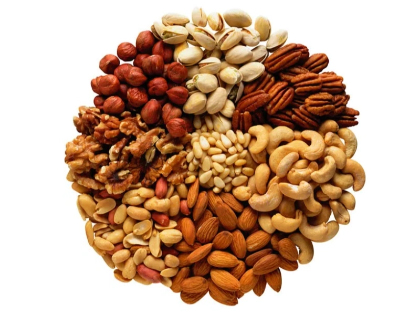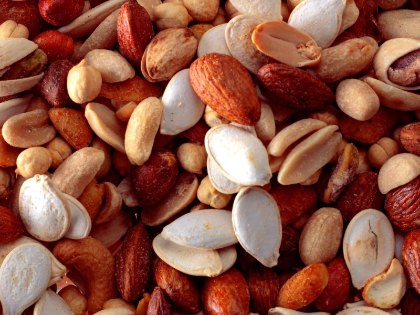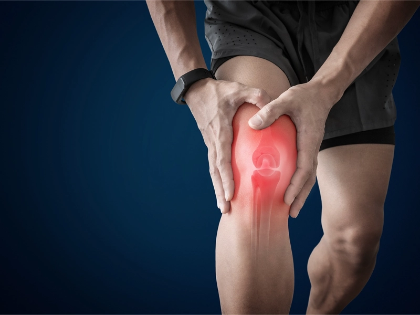Enhancing Calcium Absorption with Adequate Vitamin K Intake
Maintaining strong bones and general health depends on calcium, yet several elements affect its absorption in the body. Vitamin K is one absolutely important component involved in this process. Often disregarded, vitamin K is essential for calcium metabolism, so guaranteeing efficient use of this mineral in the body. The link between calcium absorption and vitamin K intake is investigated in this paper, which emphasizes the need of combining both nutrients for best bone condition.
Calcium's Significance for Bone Health

A basic mineral, calcium promotes many body processes and is most famously important for maintaining strong teeth and bones. Bones contain almost 99% of the calcium in the body; they give strength and structure. Throughout life, especially in childhood, youth, and later adulthood when bone density might drop, enough calcium is vital. Weakened bones resulting from a calcium deficit raise the risk of fractures and disorders like osteoporosis. Thus, general health depends on making sure one gets enough calcium from diet or supplements. But simply swallowing calcium is insufficient; the body also needs to efficiently absorb and use it, hence the importance of vitamin K grows.
Recognizing Vitamin K and Its Purpose

Two primary forms of vitamin K—a fat-soluble vitamin—are K1 (phylloquinone) and K2 (menaquinone). Green leafy vegetables contain most of vitamin K1; animal proteins and fermented meals contain vitamin K2. Though its function in blood clotting is most well-known, this vitamin is also rather important for bone health. Vitamin K increases calcium use by helping proteins that bind calcium in the teeth and bones to be active, therefore avoiding calcium deposition in soft tissues like arteries. Maintaining both general skeletal health and bone density depends on this process. Knowing the purposes of vitamin K will enable people to value its relevance in relation with calcium for best health.
Calcium and Vitamin K's Relationship

Calcium and vitamin K have a synergistic interaction whereby both nutrients help to maintain bone health by means of one other. Strong bones are built and maintained from calcium; vitamin K guarantees that calcium is used within the skeletal system as needed. Calcium might not be efficiently incorporated into the bone matrix without enough vitamin K, thereby weakening bones and maybe increasing fracture risk. Higher vitamin K intake has been linked in studies to improved bone mineral density and reduced osteoporosis risk. This emphasizes the need of making sure that calcium consumption is matched with enough vitamin K levels to optimize the advantages of both nutrients.
Sources of Optimal Vitamin K

Including foods high in vitamin K will help you better absorb calcium. Excellent providers of vitamin K1 are green leafy foods including broccoli, kale, and spinach. Your vitamin K consumption will be much raised by including these foods into salads, smoothies, or stir-fries. Rich in vitamin K2 and a great complement to your diet are fermented foods like natto, a classic Japanese dish created from fermenting soybeans. Dairy products, egg yolks, and some meats are other sources of vitamin K2. For those who might find it difficult to get enough vitamin K from diet alone, supplements are now accessible. Before beginning any supplements, though, it is essential to speak with a medical practitioner.
The Part Lifestyle Factors Play in Calcium and Vitamin K Absorption
Apart from nutrition, several elements of lifestyle can affect the calcium and vitamin K absorption. Particularly weight-bearing activities, regular physical exercise can strengthen bones and raise calcium absorption. Exercise increases the activity of cells that build bones, therefore strengthening them. Maintaining a good weight can also help to improve bone health since too heavy bodies can strain bones excessively. Furthermore crucial are limiting elements like smoking and too much alcohol that could impede calcium and vitamin K absorption. To optimize the advantages of both calcium and vitamin K for best bone health, people should lead a healthy life including balanced meals and frequent exercise.
Seeing Calcium and Vitamin K Levels
Regular monitoring of food patterns and nutrient levels is crucial to guarantee enough intake of calcium and vitamin K. Those who run a higher risk of deficits—such as elderly persons, postmenopausal women, or those with specific medical conditions—should focus especially on their dietary consumption. Tests performed by healthcare professionals can evaluate vitamin levels and bone mineral density, therefore offering important data for customized dietary advice. Maintaining a meal journal will also enable people monitor their intake of calcium and vitamin K, thereby enabling changes as necessary. Those who are proactive in their nutrition level monitoring can control their general well-being and bone condition.
Stressing a Balanced Approach to Diet
Increasing calcium absorption by means of sufficient vitamin K calls for a harmonic approach to diet. The body runs optimally when all nutrients are consumed in harmony; no one nutrient performs alone. The required vitamins and minerals for best health can come from a well-balanced diet including a range of fruits, vegetables, whole grains, lean meats, and good fats. Giving both calcium and vitamin K top priority can help people maintain their bone strength and lower their osteoporosis and fracture risk. Adopting a whole view of nutrition will help one enjoy a better, more lively life.










